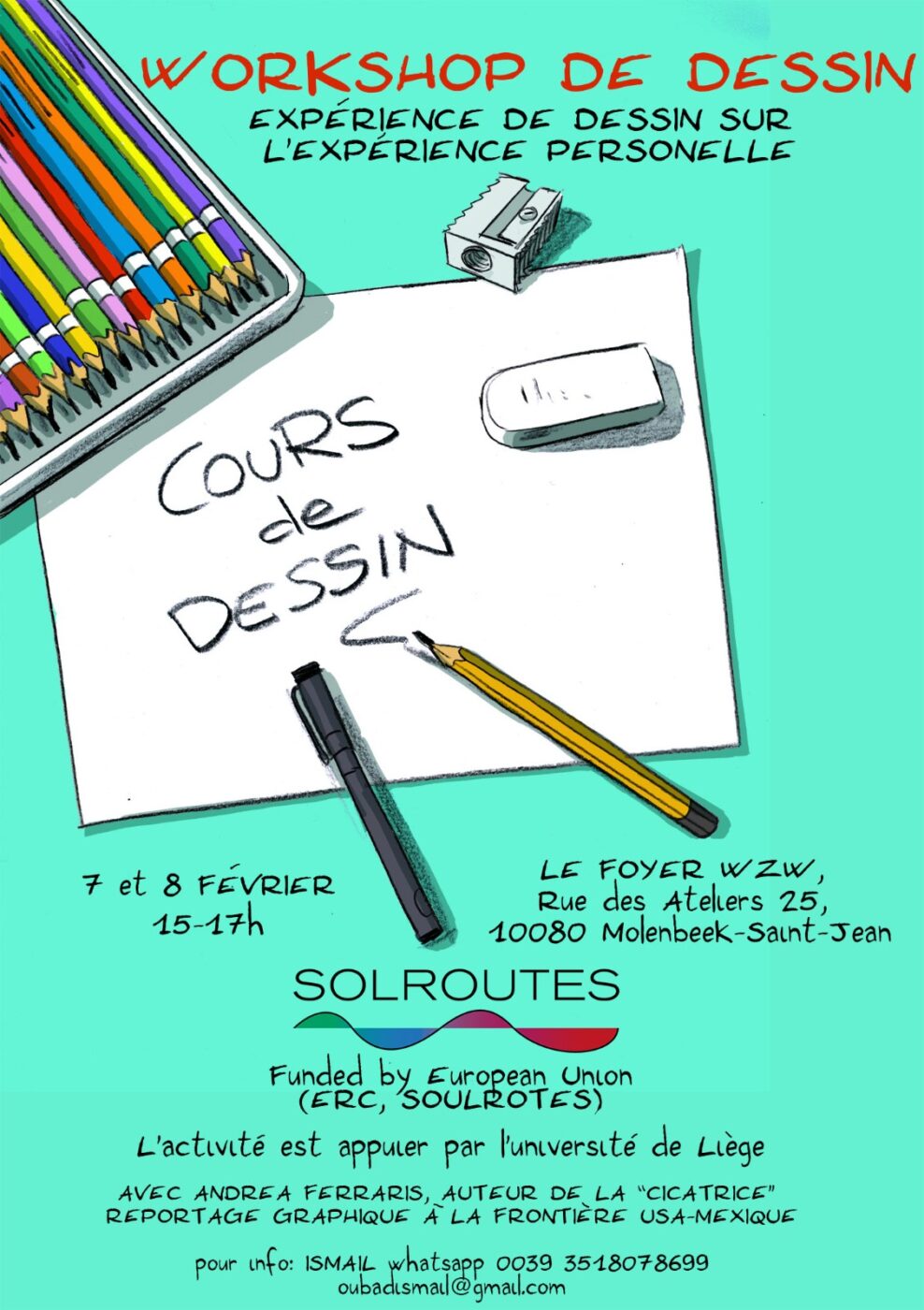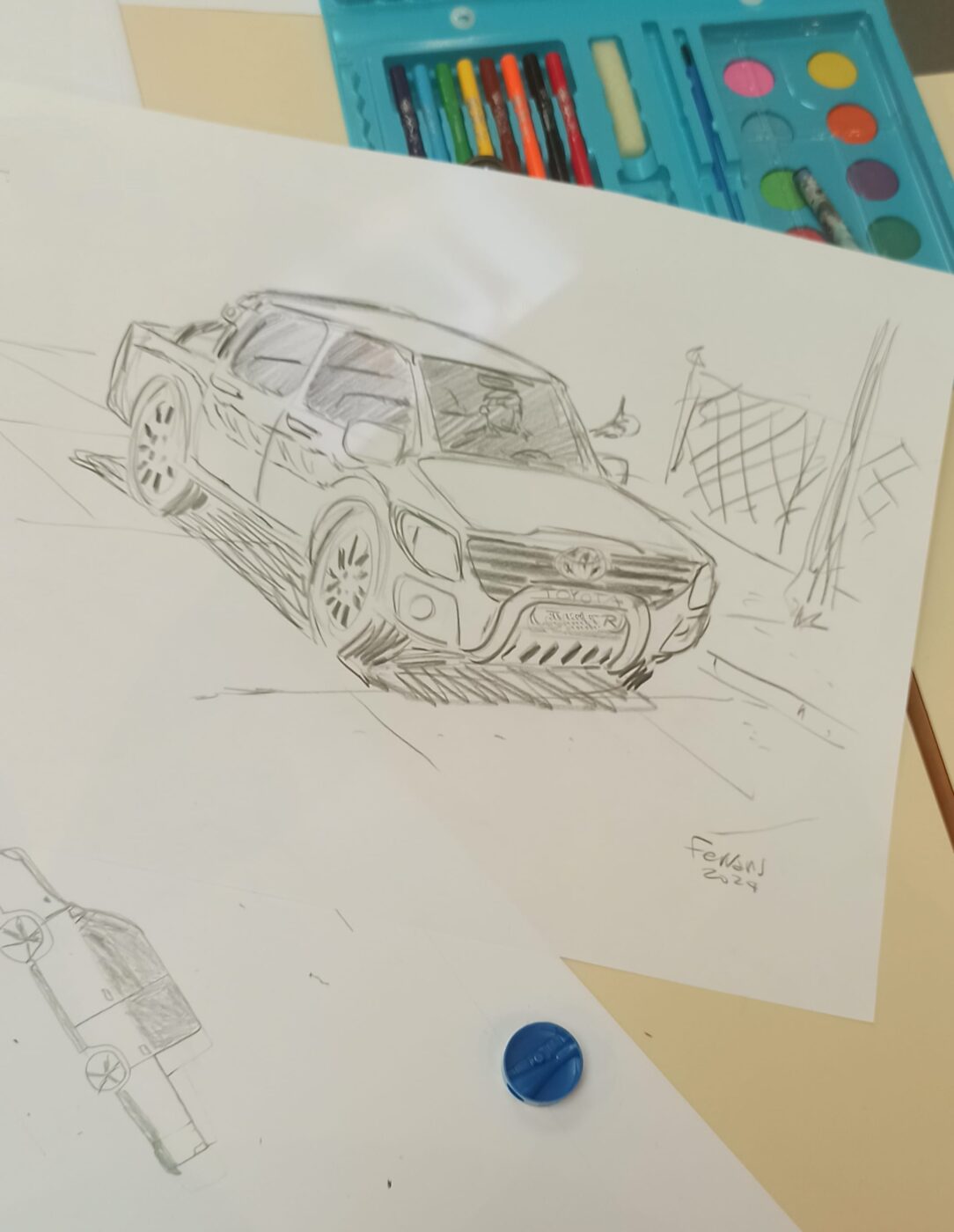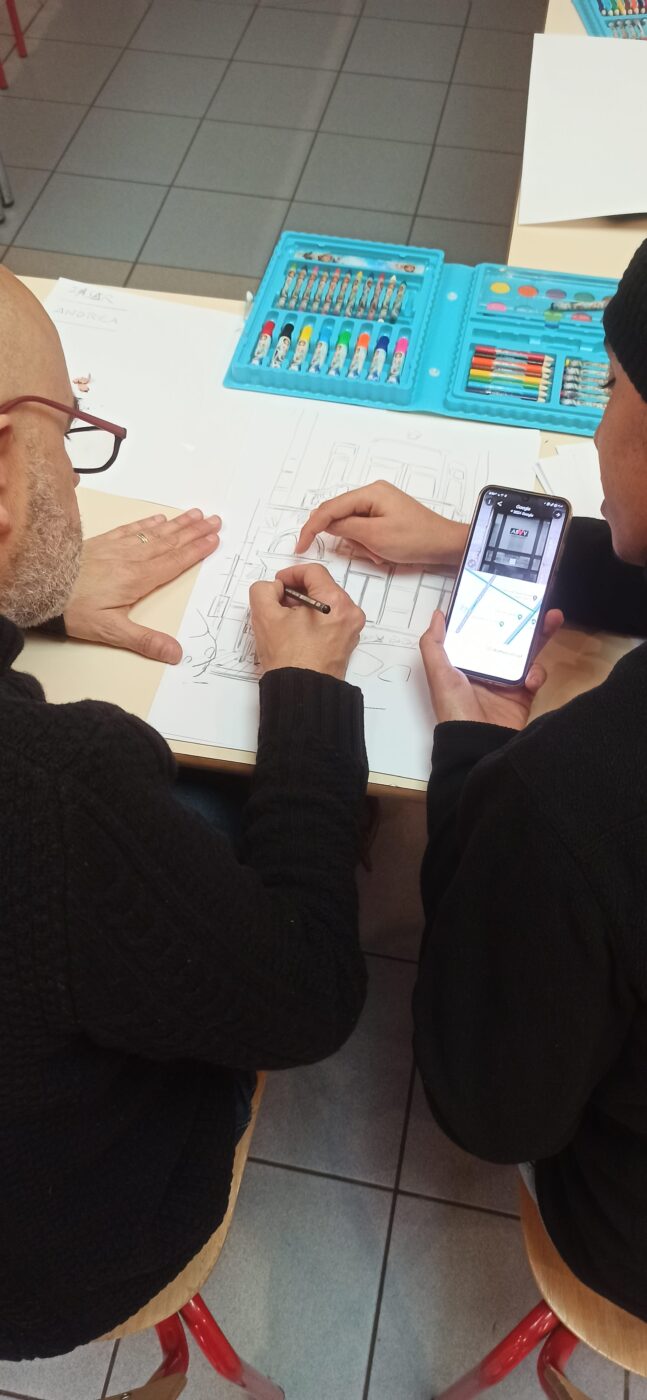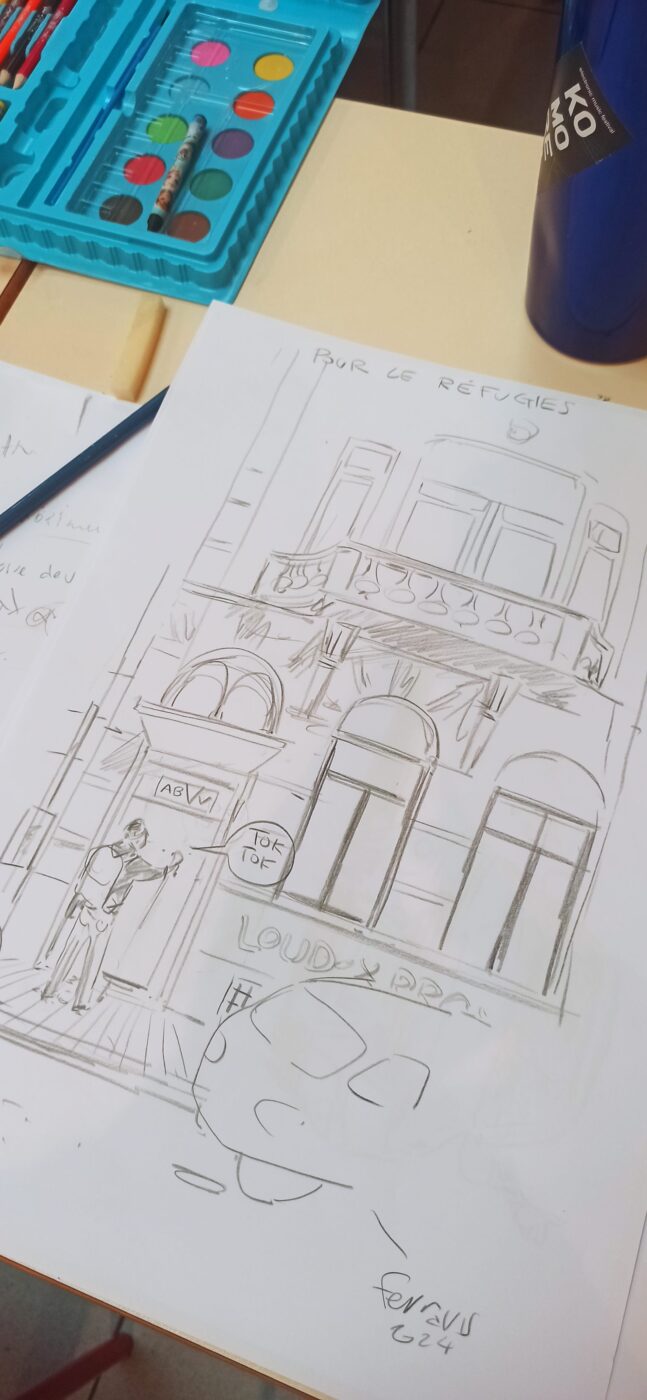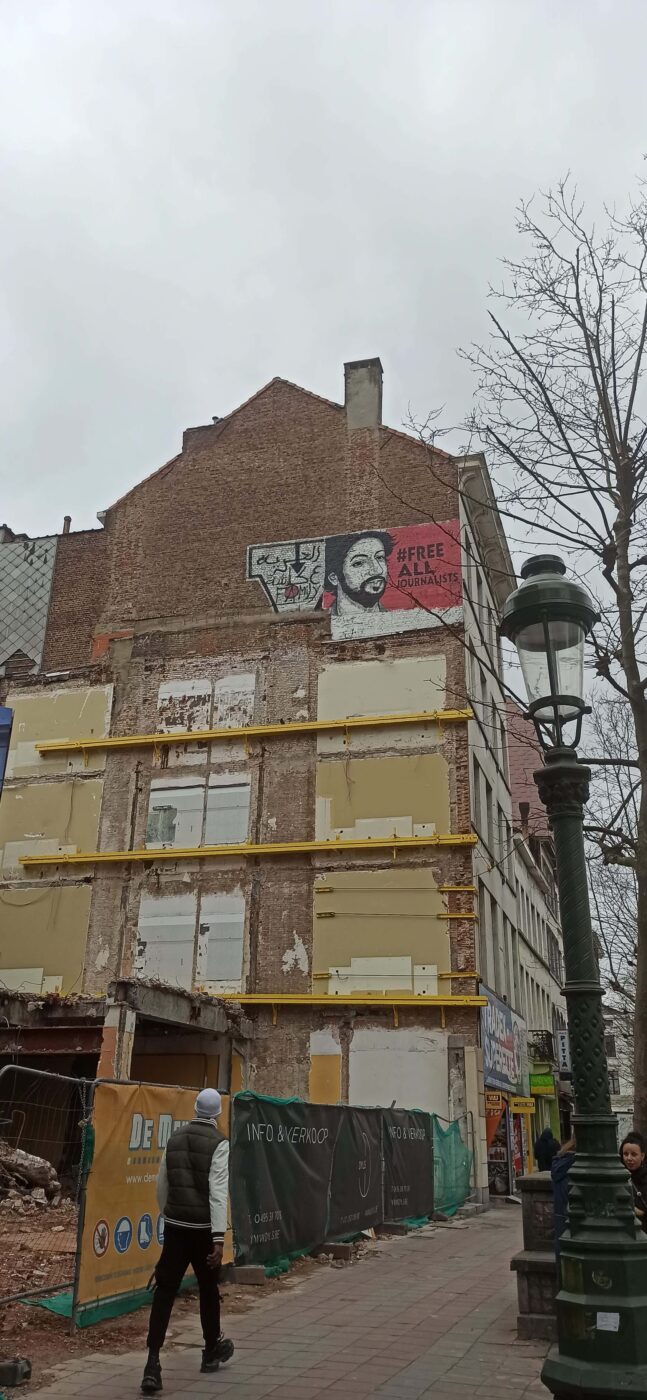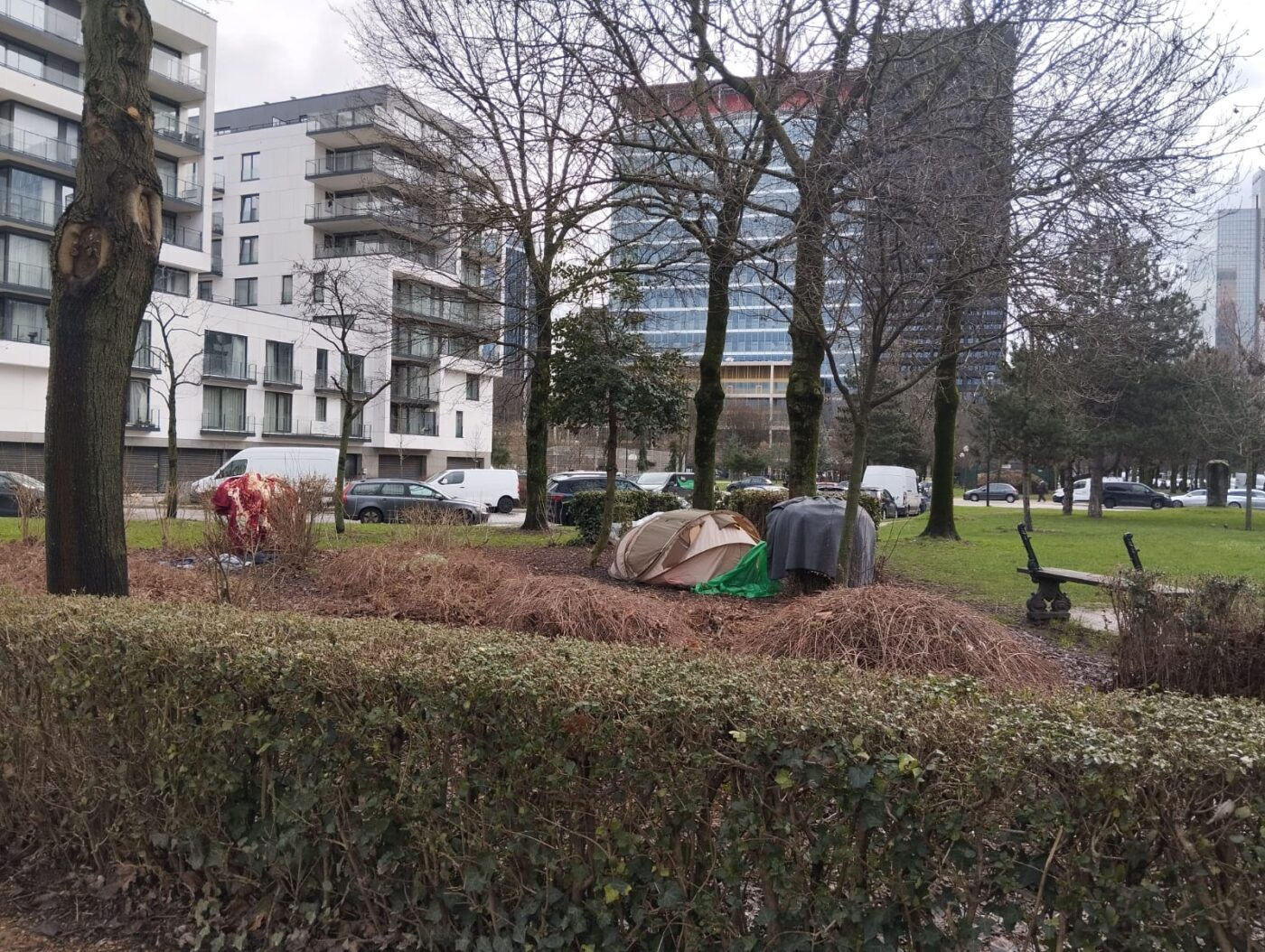Node 05 - Antenna
Ended
November 2023 - February 2024
Countries: Belgium
Nodes: Brussels
Reclaiming space, Forging Paths
Reception, Regularisation and Social Becoming of Unauthorised Migrants and their Supporters
To respond to the systematic exclusion of certain asylum seekers from reception structures and undocumented individuals from legal pathways, significant citizen mobilization in support of migrants has emerged in Belgium, particularly since the so-called “reception crisis.” This context has catalysed both formal and informal responses, including the establishment of alternative dwelling infrastructures such as squats. These squats, driven by community efforts, represent a spatial reappropriation for those marginalized by official reception and legalization mechanisms. Despite legal challenges, including the 2017 anti-squat law, the temporary measures introduced during the COVID-19 pandemic allowed for new dynamics in the negotiation of emergency support and shelter.
Through an ethnographic exploration of squatting in Brussels, this study examines how these informal dwelling spaces influence and reshape solidarity norms and values within urban environments. Using participatory observation within three specific instances of squatting, the study demonstrates that these spaces function not only as sites for the (re)production of common shelters for the excluded but also as platforms for the social and legal becoming of both migrants and citizens. The findings argue that squats transcend their role as mere shelters; they become pivotal sites where illegalized migrants and their supporters collaborate to devise strategies to circumvent irregularisation and exclusion. Far from being isolated entities, squats operate within a dense social environment co-constructed by various agents, which significantly impacts the current and future situations of those involved.
In urban contexts where migrant people establish themselves, these informal dwelling spaces—collectively produced by unauthorized migrants and their supporters—become central to understanding the appropriation of solidarity through shared concerns and struggles. The collective actions involved reflect evolving norms and practices surrounding assistance, support, and solidarity. It is through these dwelling spaces that the conventional narratives and practices of migration management are challenged, demonstrating how squats facilitate alternative forms of reception and inclusion thereby fostering new modes of political and social engagement.
This study underscores how these informal infrastructures of dwelling contribute to a nuanced understanding of urban commons, offering a critique of exclusionary practices and illuminating the broader dynamics of solidarity within migratory contexts. By examining these spaces, we gain insight into how migrants and their supporters navigate and reshape the processes of reception and regularisation, challenging established norms and advocating for more inclusive forms of solidarity.
Ultimately, this ongoing production of space reveals a broader infrastructure of support that navigates the repressive exclusions created by migration control systems, highlighting the transformative power of grassroots initiatives in reshaping urban landscapes and social relations.
Generative Narrative Workshops: Postcard Chronicles of Solidarity and Struggle in Brussels’ Migrant Squats
The postcard emerging from the Generative Narrative Workshop, conducted within the ethnographic antennae of Brussels, represents a collaborative effort involving an artist, a researcher, and individuals actively engaged with dwelling spaces for unauthorized migrants. This artistic expression was inspired by a significant event: a poignant manifestation organized by a collective of “undocumented migrant” women. This demonstration was triggered by a judicial order for the expulsion of occupants from a hotel during the harsh winter of February. The order ignited a wave of mobilization from various collectives and citizens, demonstrating profound solidarity with the undocumented women and their children.
Amidst this scenario, where the tension between solidarity and the threat of expulsion was palpable, the researcher and artist were intricately involved. The artist and the researcher witnessed and reflected on the raw emotions, chants, and interactions between the police and solidarity groups. These were visually documented, forming the foundation for a postcard that represents the struggles faced by undocumented individuals in securing and maintaining their squats, as well as their ongoing pursuit of regularisation.
The postcard serves not only as a depiction of immediate struggles, but also as a tribute to the solidarity displayed in the face of repression. It provides a tangible representation of the fight for housing and the enduring spirit of solidarity that emerged from this confrontation. Through this artistic endeavour, the project aims to offer a visual commentary on the ongoing struggle for migrant inclusion within the urban landscape of Brussels.
I. Oubad (researcher), A. Ferraris (Illustrator)
Researchers
L. Amigoni, I. OubadRelated Outputs
Article
Reception through Mobile Commons: Disrupting Exclusion and Negotiating Solidarity Politics through Brussels’ Squats
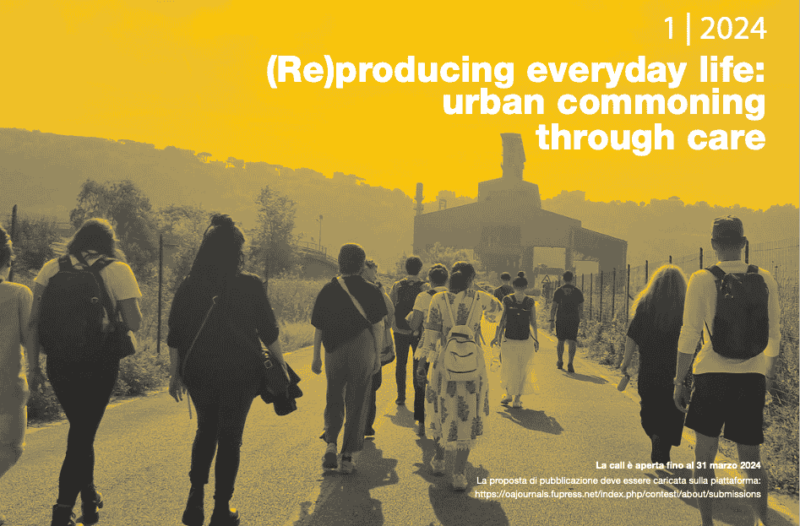
Authors: I. Oubad
Published in: Contesti. Città, Territori, Progetti, (1)
